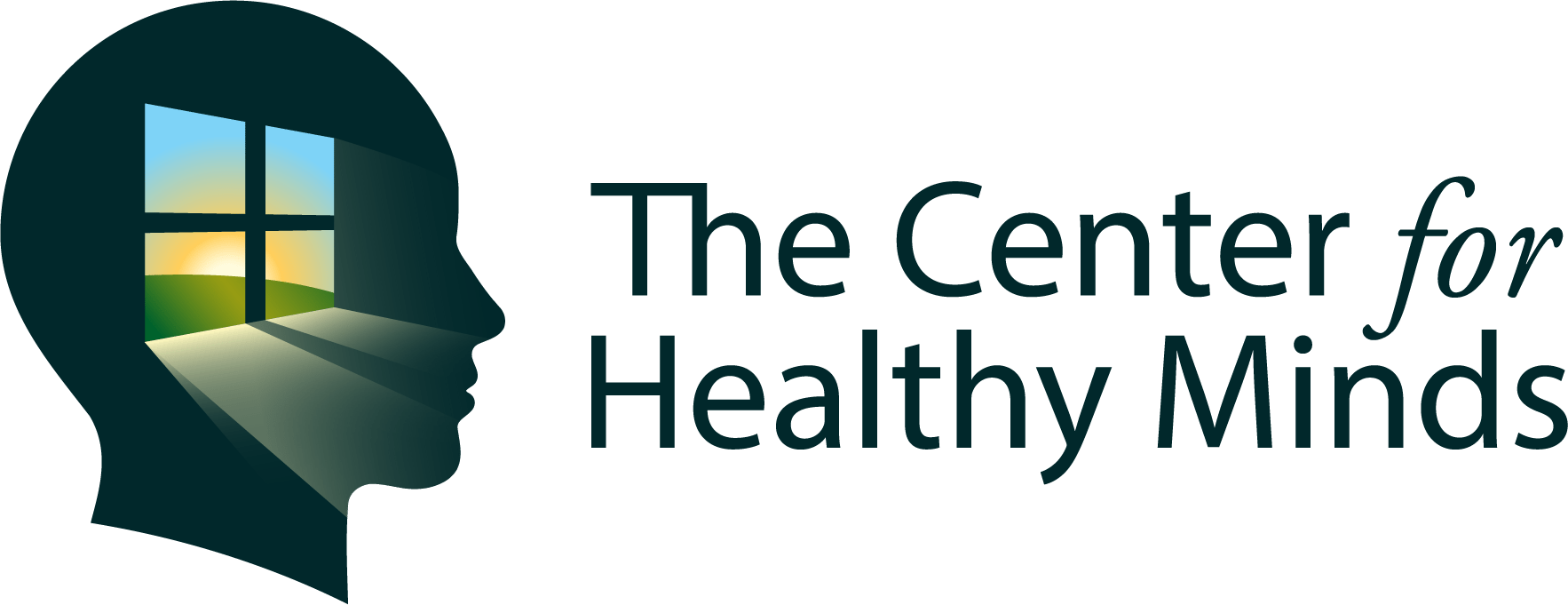No. We are an out of network provider and do not accept insurance. We do not participate with insurance plans because they often dictate the type, frequency, and amount of care they will allow, which impairs our ability to provide optimal treatment. Patients can receive reimbursement from their health insurance for our services, depending on their out-of-network benefits. We are happy to provide patients with insurance receipts for all treatment received. It is recommended that you check with your insurance company prior to beginning treatment.
This depends on the age of the child and the particular difficulties that are the reason for seeking the evaluation. However, in general, it is best to be honest but brief with the child or teenager. Tell them simply that you know that they have been having difficulty with ___________(whatever the main problem is- for example focusing, sitting in school, controlling their anger, feeling sad, feeling nervous…) and there is an excellent doctor who helps many kids with this issue. You are going to visit that doctor so that she can help so they don’t have to feel so ______________ anymore. Reassure them that the doctor is just going to talk to them and will never give them a shot.
While you are permitted to do so, we strongly recommend against it. Our doctors and physician assistant generally use all of the allotted time to accurately assess, diagnose and treat patients. The evaluation requires a great deal of focus and discussion. When other children are present, it is often difficult for them to wait in the waiting room for the 60-120 minutes that the evaluation takes. As a result, they frequently interrupt the session asking for a parent’s attention, snacks, drinks, help in the bathroom, etc. These frequent interruptions inhibit the provider’s ability to obtain necessary information and arrive at the most comprehensive conclusion. Therefore, we recommend that you schedule the appointment at a time when you are able to get childcare for your other children.
As usual, this depends on the age of the child and the nature of the problem. However, in general there are 3 basic approaches. The first is to make it a non-negotiable issue. If your child was physically ill with a serious medical condition but didn’t want to take their medicine, you would force them to do so. This is no different. Tell the child that the doctor said that the medicine is necessary for their health and they must take it. The second approach involves using a positive incentive to take medicine. This involves creating a system where every day that the child takes the medicine without difficulty, they earn a check on a chart or a small amount of money that may be used to buy something large in the future. After the child earns a certain number of check marks, they earn a prize. The third approach is to use a negative consequence for not taking medication easily. With this approach, the parent tells the child that he must take his medicine daily. If he does not do so, he will receive a negative consequence, (ie- have his lego set taken away, have his iPod taken away, have early bedtime, have early curfew …).
If you have tried several medications in the past without success, we may be able to argue with your insurance and obtain a medication prior authorization. This may take up to 72 hours. If we do not succeed, you have two options; pay for the medicine out of pocket or ask your doctor to choose a medication that your insurance company covers. If there is an appropriate medication that your insurance company covers, your doctor will be glad to prescribe it for you.
Yes. It is important that the doctor or physician assistant do their own comprehensive evaluation to confirm prior diagnoses, as sometimes they are incorrect, and to be certain that no additional diagnoses were missed. The initial evaluation also allows your provider to get to know you and your difficulties well.
Yes. While your initial psychiatric evaluation must be done in person in our office, follow up appointments may sometimes be done by phone to minimize travel. However, if serious symptoms arise, it may be necessary for you to come in person to be seen. Also, if you attempt to do all of your follow up treatment by phone, it is difficult for your doctor to get to know you well and for you to obtain the highest quality of care.
This will depend on the severity of your psychiatric symptoms and the specific medication(s) that you are prescribed. Initially, you can expect to follow up more often while your psychiatric symptoms are being stabilized. Later, you will follow up less often. Follow up appointments range from weekly to once every 3-4 months, but usually are once every 1 to 3 months.
You must have a regularly scheduled appointment to follow up. This provides you with the highest quality of psychiatric care and ensures the best treatment outcome.
Yes. All medication management is done at regularly scheduled appointments. No medication changes are made via email, What’s App, text or through the secretary. It is important that your doctor or physician assistant hears all of the available information and carefully discusses with you the medication options and potential side effects when adjusting your medication. This can only be done at a regularly scheduled appointment. This ensures the best possible treatment outcome.
Yes. If you have a good relationship with your current therapist and are making progress, you should definitely continue treatment with them.
Our practice sees patients with mild substance abuse or eating disorder symptoms who are mainly seeking treatment for other mental health issues (for example depression or anxiety). However, we are not experts in the treatment of either substance abuse or eating disorders. If either of these are your main area of concern, you should consider seeking treatment with a psychiatrist who specializes in these areas. Some problems, such as hair pulling (Trichotillomania), do not respond well to medication treatment. If you present with a problem that does not respond well to medication, your provider will diagnose it and refer you to the appropriate place for treatment.
No. Dr. Rothbort has found that it is more productive to speak to other professionals after the evaluation because she is then in a position to ask pertinent questions and obtain the most relevant, useful information.
Usually not. With most medicines it is not possible to tell from looking at a patient that they are taking medication. In rare cases, a medicine may cause sedation or a slight tremor, which could be observable to others. If this is a possibility, your doctor will explain this to you prior to prescribing the medicine so that you may decide if the risk of such a side effect is worth the benefit.
Your doctor works hard to run on time in order to minimize patient waiting time. If you are late to your appointment, you will be seen for the remainder of the time. Our office staff will attempt to contact you when you are a few minutes late to ask if you wish to speak to the doctor by phone while en-route to the office. Alternatively, your doctor may spend the time before you arrive speaking to a family member to obtain information (for example, if dad is driving your teen to the session and is late, your doctor may spend the time speaking with mom by phone to obtain information).
Our Psychiatric appointments are of two durations; 45 minutes and 20 minutes. If you schedule a 45 minute session but find that you complete your appointment in less time, we encourage you to use the remainder of your time to discuss additional issues of concern such as parenting questions, social issues, school problems, developmental questions… In the future, you may schedule shorter sessions (20 minutes) if you prefer. If you scheduled the shorter session length (20 minutes) but find that you use less time, again we encourage you to use the remainder of your time with your doctor productively. Remember that our professionals are experts in child development, child and adult psychopathology, parenting and other areas. We encourage you to seize the opportunity to obtain advice and recommendations in these areas. Our Providers do not offer a session shorter than 20 minutes because it is not usually possible to gain a complete understanding of the patient’s concerns and make treatment recommendations in less time.
Our office staff sends a reminder call or text the day prior to your appointment to attempt to reduce this problem. However, if you do not arrive at the time of your scheduled appointment, our office staff will attempt to contact you through all available means. She will attempt to call and text you. If we reach you, you may have the remainder of your session by phone. If we are unable to reach you, then you will need to reschedule your appointment. Unfortunately, if you do not show up for your appointment you will still be billed for the session. The reason for this is that our providers have a list of patients waiting for an appointment. If you schedule an appointment but do not attend it, you are preventing another patient from being seen during that time.
If you schedule an appointment but realize that you are unable to keep it, please let us know as soon as possible so that we can schedule another patient in that time slot. 48 business hours are required for cancellations. If you realize last minute that you cannot come to your session, you many have the session by phone. If you are unable to speak to the doctor at the time of your session, unfortunately you will be responsible to pay for the session.
It is important to understand that this is an outpatient private practice and as such there is not someone on call 24/7. If you have an emergency, please call 911 or go the emergency room.
Generally speaking, you should call your therapist. If he/she feels that you need a medication adjustment, then please call the office to schedule an appointment.
The doctor uses the phone for emergencies only. If you have a question or concern in between appointments, you have 4 options.
・You may move up your next appointment to a closer date so that you may discuss your concerns with your doctor at length.
・You may call the office and speak to the receptionist. The secretary will speak to your doctor and call you back with her recommendation/response.
・You may email your doctor directly, and she will reply via email. Our email is fully HIPAA compliant and confidential.
・Finally, you may call the office and request that the doctor return your phone call. All calls are billed at the rate of $12 per minute.
Even when patients’ symptoms are controlled, it is necessary to follow up with an appointment every few months. This is needed to assess and maintain optimal benefit and to monitor for potential side effects. The frequency of patient follow up is determined by the guidelines set forth by the American Academy of Child and Adolescent Psychiatry and the American Psychiatric Association. Our physicians are board certified and follow these guidelines to provide the highest quality of psychiatric care.

